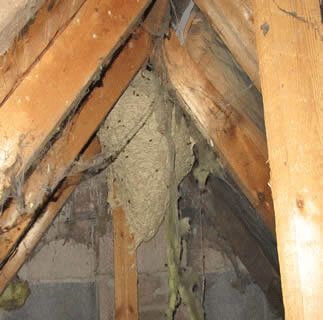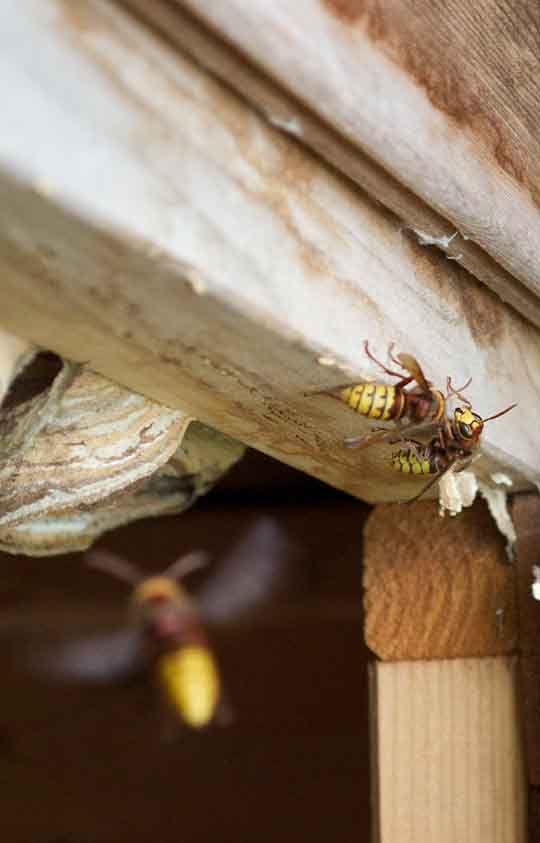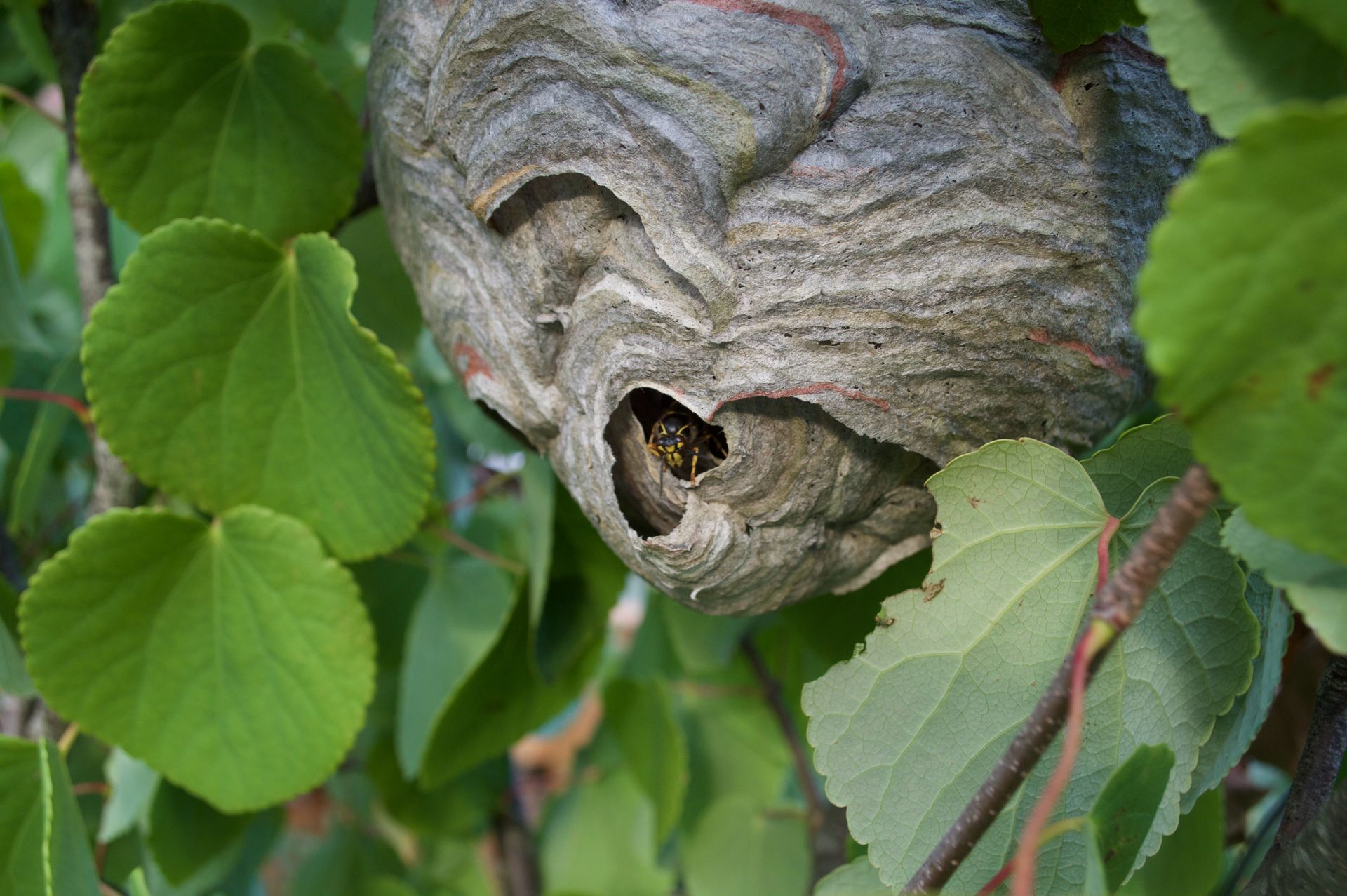Should Old Wasps Nests Get Removed
Should Old Wasps Nests Get Removed
Old wasps nests in your house will never again be used! We see hundreds of wasp nests each year while carrying out our Bristol wasp control service, which highlights the variety in both size and location.
Paper wasps in the United Kingdom show no propensity to reoccupy old nests. However, we have seen wasps on four separate occasions build in the footprint of old nests. Another phenomenon was a wasp nest being built within an old nest.
It is not uncommon to see wasps of the same species as previous nests in a property building close to the remains or footprints of old, discarded nests.

We think future queens may have a propensity to establish a new colony where a pheromone from previous wasp activity has been detected.
This is likely an evolutionary trait, benefiting the survivability of a new colony developed where colonies success has occurred before.
A disadvantage might be the presence of persistent or residual insecticides that might still be active and kill new queens. Another disadvantage might be the presence of parasites.
Benefits Of Old Wasps Nests

Modern wasp control has a handle on prevention and not just control. One way of deterring wasps is the installation of a fake or mimic wasp nest.
We routinely find that wasps of a particular species build nests in the same houses almost every year. While potentially coincidental, this might present clues to the success of mimic nests.
For example, If a queen wasp enters your attic and discovers wasps already nesting or detects wasps of a different species, she might decide not to nest there.
With this in mind, an old nest could discourage wasps from nesting in some small way.
As we have already mentioned, residual insecticides may still be present and active the following year and offer another layer of value. If you remove the old nest, you will lose any possible benefits.
Money, money, money? Yes, you can sell old wasps nests online and make a tidy sum! This sounds bonkers, but search up old wasp or hornets nests for sale, and you might be surprised at how these things go for.
Finally, we must not forget that they are weirdly beautiful and fascinating to dissect. If a nest has not been treated with pesticides or treated with safe freeze spray, it should be safe to remove and handle. One word of warning, though, be sure they are inactive!
Why Remove A Wasp Nest?

So the case for removal is not heavily supported here, but we should mention the drawbacks of leaving nests in place.
Service professionals carrying out routine or emergency maintenance will often refuse to enter a building or building cavity if a wasp nest is visible.
Bumblebees also like to build colonies on the remnants of old nests. We have seen European Tree Bumblebees nesting in wasp nest remnants on two occasions.
Finally, wasps will often cause structural damage to plasterboard walls and ceilings or insulation, and roofing felt.
If nests have been left in place, you might not discover this damage until it causes related dampness or other issues and requires more expensive repairs.
Wasps nests have also been described as a fire risk because they are essentially just paper. Nests built over or close to ceiling lights should be considered for removal but are often ignored, especially where you have no access to nests and would need to cut a hole in your ceiling to get to them.
Dangers Of Old Nests
The main dangers of old nests are rarely discussed, so we have listed the top four dangers or redundant nests.
- Unsafe Ceilings & Supporting Structures – Don’t fall through a ceiling.
- Unsafe or Restricted Access – Don’t get stuck or trapped.
- Respiratory Allergies To The Dust – Wear a mask.
- Spiders & Parasites – Wear gloves, don’t get bitten.
Conclusion
Ultimately the removal of wasps in Bristol is a personal choice and is likely to be more expensive to complete than a simple wasp treatment. Where access is good, we offer a removal service, but not at the same time as treatment. We always wait for treatment to be effective before bringing nests through customers homes.
We hope this has answered some of your questions about old wasps nests and why you should or should not remove a wasps nest.